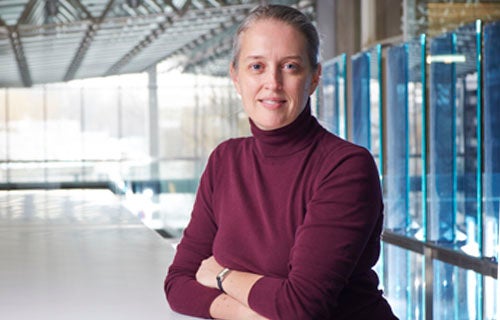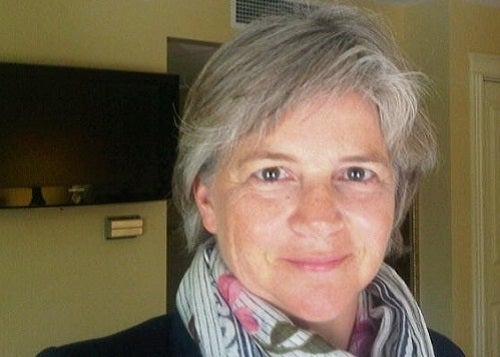Bridging the gap between science and policy is an important process that requires constant refining and examination. Heather Douglas, with a background in the history and philosophy of science, and Elizabeth Atkinson, with a background in federal policy, are striving to build connections between the two worlds through their work at UWaterloo.
In September 2016, around 430 professionals in the fields of science and policy from more than 70 different countries gathered in Brussels, Belgium to discuss the process of bridging the gap between science and policy and related issues. The conference, organized by the International Network for Government Science Advice (INGSA) in partnership with the European Commission, provided an opportunity for professionals to discuss the role of science advisors, best practices for providing science advice that is relevant to public issues, the challenges facing policymakers once they receive science advice, and how to meaningfully engage stakeholders and other citizens with the relevant scientific evidence, as well as the social and ethical issues, surrounding a certain topic.
Heather Douglas, the Waterloo Chair in Science and Society at the University of Waterloo, participated in this conference. She previously spoke about her research, which includes how to get citizens properly involved in science and policy, at the 2015 Canadian Science Policy Conference:
How should the society be involved? Either through governance structures, through public participation structures, in ways that don't damage the integrity of science, because we want science to still be a robust knowledge production practice, but that make it politically accountable, in democratic societies in particular.
Regarding accountability, she continued, “For democratic accountability reasons, if you have any formal science advice, and I consider formal science advice any science advice where there’s a written report [and] more than one scientist has had to work on it, […] that formal science advice always has to be publicly available, preferably posted online without a freedom of information act request, so that the public can see what advice politicians are being given to see whether or not politicians' judgments in the face of the advice are ones that they would agree with. This is crucial.”

Heather was also one of the key drivers of the World Wide Views on Climate and Energy project that IC3 worked on in 2015. The Waterloo event was part of the largest-ever global citizen consultation held on climate and energy and resulted in an international report stating that there is strong public support for political action on climate change. Recently, Heather led a local Decarbonization Forum and will be reporting on its outcomes at a post-COP22 panel discussion on November 28th.
Elizabeth Atkinson, IC3’s Director of Strategic Partnerships, is engaged in bridging the gap between science and policy as well. Participating in the 2016 Canadian Science Policy Conference in Ottawa on November 8th to 10th, she encouraged applying a systems-based approach to understand and collaborate on the factors that drive or impede adapting to the impacts of changing climate. On what the key outcomes of the conference were and the progress she feels has been made toward connecting science to policy, she says,
The tone was very optimistic throughout the event; both researchers and senior policymakers were enthusiastic and hopeful for the new era in science-policy interaction in Canada. Defining science as organized knowledge seems to go a long ways to identifying knowledge assets in the academic, public, indigenous and private domains and provides a framework for valuing and treating science with respect in the policy-making process. But as someone noted at the conference, communication is key – if you can’t communicate your science, then you haven’t done the work. Policy-making is an evolving art form – it will differ from the stakeholder engagement of the past two decades in that interests and knowledge are coalescing and converging to effectively bridge the multitude of silos. To be effective, though, translating and communicating knowledge that is understandable to the average person is essential.

Elizabeth is currently leading the development of a Networks of Centres of Excellence (NCE) proposal on Climate Adaptation, which has a strong focus on collaboration to integrate research and policy-making.
Bridging the gap between science and policy is not a quick and easy process, but individuals like Heather and Elizabeth are doing their part to ensure that progress is made toward linking the two in a way that will be beneficial for everyone.